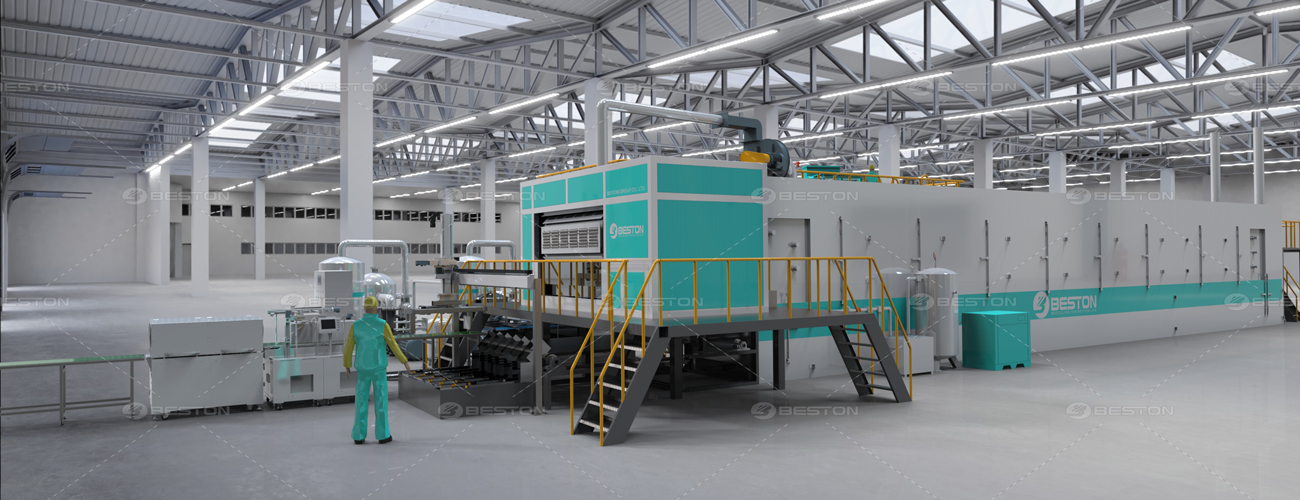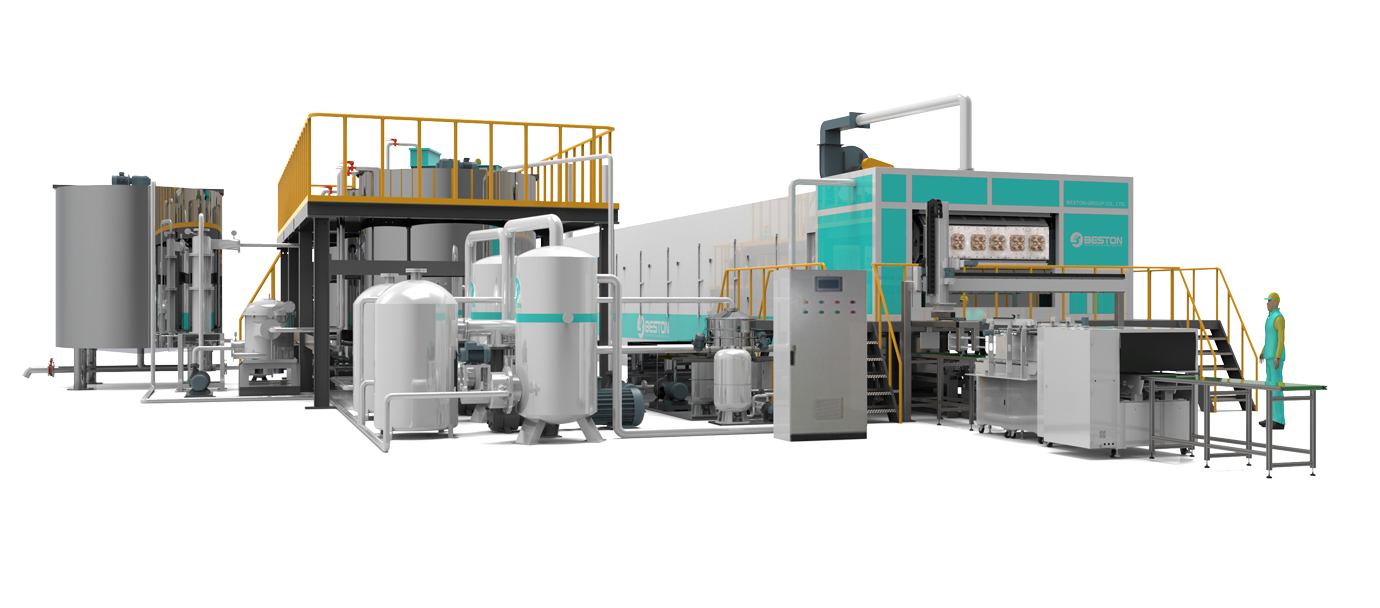As global industries shift toward sustainability, biodegradable packaging is becoming a key focus for manufacturers and policymakers alike. Traditional plastic-based packaging is being phased out in favor of eco-friendly alternatives, with pulp moulding machinery playing a crucial role in this transition. The ability to transform waste paper into sturdy, biodegradable packaging solutions has positioned pulp molding technology as an indispensable asset in modern production facilities.
Scaling Production with Automated Systems
Industrial demand for sustainable packaging solutions necessitates high-output systems. Advanced automation in an egg carton production line allows manufacturers to meet growing market requirements while maintaining cost efficiency. These systems integrate pulp preparation, molding, drying, and hot pressing, ensuring uniform quality across large-scale production.
Automated operations reduce manual intervention, enhancing precision in fiber distribution and forming accuracy. The result is consistent product integrity, whether manufacturing egg cartons, beverage carriers, or industrial-grade protective packaging. With real-time process monitoring and predictive maintenance features, these systems also minimize downtime, increasing overall operational efficiency.
Innovations in Moulding Precision and Material Optimization
The evolution of biodegradable packaging is closely linked to advancements in molding technology. A coffee cup tray making machine exemplifies how precision-engineered molds can create complex geometries with minimal material waste.
Enhanced vacuum-assisted forming techniques improve fiber compaction, producing structurally resilient trays that maintain rigidity under load. Meanwhile, innovations in multi-layer pulp molding enable the incorporation of biodegradable coatings, enhancing moisture resistance without compromising environmental sustainability. This technology is particularly beneficial for food and beverage applications, where prolonged exposure to liquids necessitates additional durability.
Economic Viability and Investment Considerations
For businesses considering an egg tray making machine project report, cost-benefit analysis remains a primary concern. While initial capital expenditure on pulp molding systems can be substantial, the long-term financial benefits justify the investment.
Factors influencing ROI include:
-
Raw material cost efficiency – Utilizing recycled paper significantly reduces material procurement expenses.
-
Energy optimization – Modern drying technologies, such as integrated thermal recovery systems, reduce energy consumption, lowering operational costs.
-
Regulatory compliance and incentives – Many governments offer tax benefits and subsidies for adopting biodegradable packaging technologies.
Strategic investment in high-capacity production lines ensures manufacturers can capitalize on the increasing demand for eco-friendly packaging while maintaining competitive pricing structures.
Sustainability and Market Adoption
Consumer awareness and regulatory frameworks continue to drive the adoption of biodegradable packaging solutions. The packaging sector must align with stringent environmental policies, including single-use plastic bans and carbon footprint reduction targets.
Pulp moulding machinery offers a scalable and adaptable solution to meet these requirements. Whether for egg cartons, coffee cup trays, or industrial packaging, these systems provide a sustainable alternative without compromising functionality. As research into fiber-reinforced pulp composites progresses, the durability and performance of biodegradable packaging will only improve, further accelerating market transition.
Conclusion
The future of biodegradable packaging lies in the continuous refinement of pulp molding technology. With advancements in automation, material engineering, and energy-efficient processing, pulp moulding machinery is set to become the cornerstone of sustainable packaging production. Businesses investing in an egg carton production line or a coffee cup tray making machine are not only securing economic advantages but also contributing to global environmental conservation efforts.


